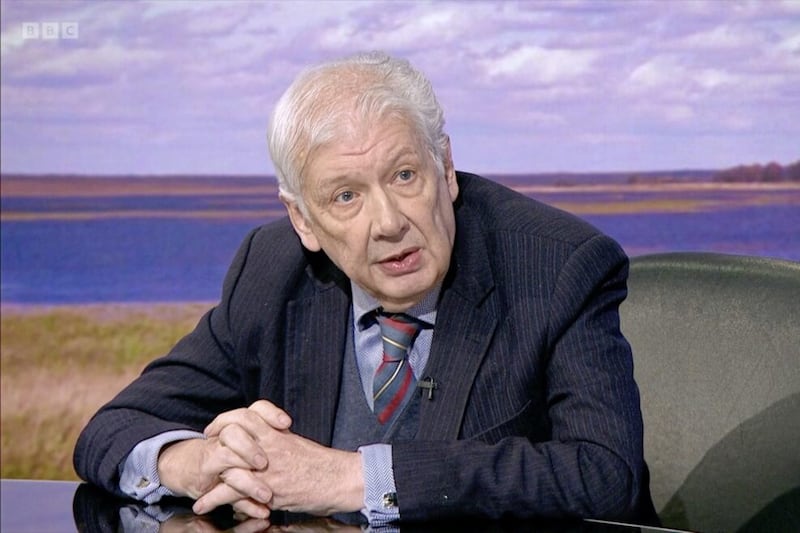Ignore the hype, the DUP is not about to split in two. Yes, of course there are differences of opinions within the party, but this is a perfectly normal. A political party is a group of people with similar but not identical beliefs.
The way I see it, the DUP can be broadly divided into three groups. Firstly, a small number of people who would support a return to power-sharing in the morning, without any preconditions.
Read more:
Deirdre Heenan: Free hospital parking will only make a bad situation worse
Deirdre Heenan: The real reason Brexit 'hard man' Steve Baker wants a border poll supermajority
Even Peter Robinson knows the game is up – the DUP needs to get back to Stormont
Deeply frustrated with the political impasse, they believe that collapsing the devolved institutions was a mistake. For them, the hiatus has achieved little or nothing. The cost-of-living crisis, the decay in public services, spiralling health waiting lists and chaos in education mean this boycott is indefensible.
The second group represent the overwhelming majority of the party. They are committed to devolution and power-sharing and want to find a path back to Stormont. Whilst the difficulties associated with the Windsor Framework are acknowledged, these are not viewed as insurmountable.
Indeed, with a number of concessions from the British government, a nod to their constitutional concerns, and recognition of the problems that remain with the trade deal, they would be ready and willing to head back up the hill.
DUP die-hards
Finally, the third group: a handful of die-hards who have given up on restoring the institutions. For them the devolution project and power-sharing is dead in the water. Under this system they have seen their power ebb away and serving under a Sinn Féin First Minister is an anathema to them.
In the end it's a numbers game. There won't be a significant split in the DUP because the numbers don't stack up. The hardliners know that despite all their grandstanding they have neither the support nor the stomach for this fight.
The endless bluff, bluster and wheeling out of strawmen speaks volumes. They have had years to provide a viable alternative but have come up with nothing. They have no intention of leaving the DUP and taking their chances as independents.
Our electoral system, and the structures that surround it, have been designed by political parties to address their needs and concerns – and without the cover of this comfort blanket, baby it's cold outside...
In the north, unlike in the Republic, independents have not played a significant role in political life. Very quickly these dissenters would find themselves ostracised, marginalised and irrelevant.
Jim Allister provides a reminder of what happens when you lose the battle within the DUP. Despite his ubiquitous presence in the media, his eloquence and ability, he is a one-man band. The TUV have failed to siphon significant support from the DUP and he is reduced to the role of pantomime villain.
Damage to DUP not a driving motive
Many of these naysayers have long-standing, family ties with the party. Whilst they don't want compromise, they also don't want to tear their beloved party apart. Causing lasting damage to the DUP is not a driving motive. Adopting a cynical, nihilistic approach will achieve nothing.
It is time to stop giving credence to talk of a split. It's not going to happen. Sir Jeffrey needs to find the courage to lead his party back to power-sharing.
A compromise on the self-destructive boycott can be reached, one that can win the support of the overwhelming majority of the party. Anyone with an ounce of political savvy knows that the seven tests are impossible to achieve.
The Windsor Framework is here to stay, and the DUP know it. Peter Robinson's intervention last week has added a much-needed dose of reality to the debate. Insisting on getting everything that you ask for is the road to no town. As he rightly states, the DUP have come as far as possible in the current round of negotiations. A small cabal cannot be allowed to hold the rest of the party to ransom.
We have been here before with the Anglo-Irish Agreement, the Downing Street Declaration, the Good Friday Agreement, the flag protests, the Irish language and same-sex marriage, to name but a few.
There will be no seismic offer from the British government, just another slow dawning that there is no alternative.








